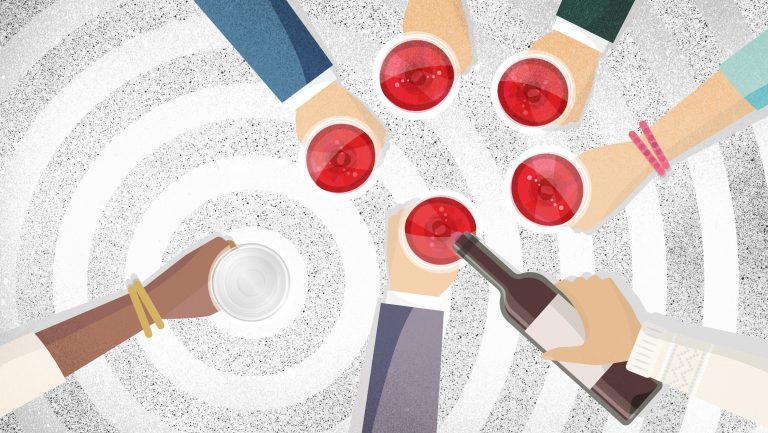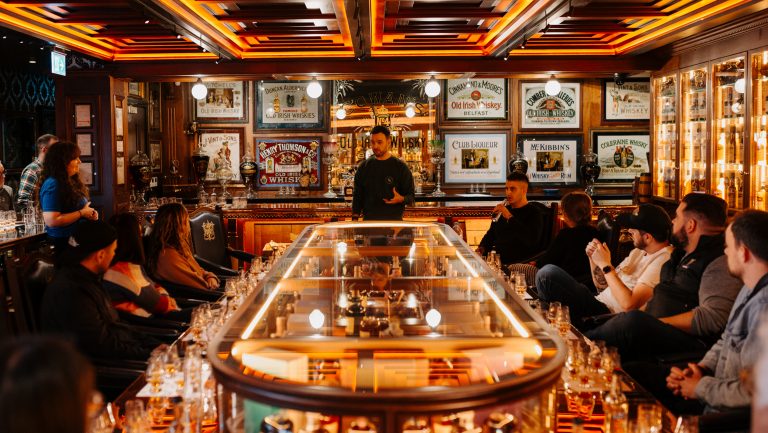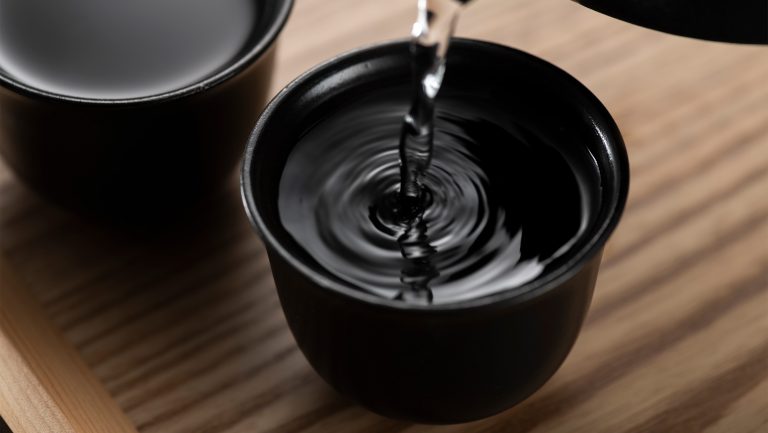I’m angry, exhausted, and hurting.
I became a journalist 47 years ago to write about race and social issues. I wrote for the Miami Herald, the New York Times and the Wall Street Journal. In 1998, the Journal asked me and my husband, John, to create a wine column for its new weekend section. We had been studying wine since we met in 1973, but this truly immersed me into the world of wine, and I’ve been here ever since, writing “Tastings” for the Journal until 2010 and now as the senior editor for the online wine magazine Grape Collective.
The killing of George Floyd, the resulting protests, and the disproportionate impact of COVID-19 on communities of color have heightened my anger at how little progress we’ve made toward justice and equality—both in our country and in the wine industry.

Don’t miss the latest drinks industry news and insights. Sign up for our award-winning newsletters and get insider intel, resources, and trends delivered to your inbox every week.
Floyd’s death, the resulting protests, and the question “how can this still be happening?” are met with an inescapable truth: This continues to happen because too many people tolerate it. Each time, after protests break out, officials issue condemnations, and investigations are concluded, life returns to “normal.”
Such has been the case in the wine industry, where leaders profess over and over that they want more diversity in their ranks. It’s an empty promise. Which is both maddening as well as foolish for an industry that needs to grow its consumer base.
Look at every sector of the industry, save the actual hard work in the vineyards, which is done largely by Hispanics, and you’ll find only a few of us here and there. A sprinkling of color. It’s not because we’re not interested in wine, or uneducated about wine, or that we can’t be found. It’s because we’re really not wanted, except maybe for optics, or as a market for Muscat.
One would think any industry that revolves around hospitality would want to be viewed as progressive, anti-racist, and inclusive. Some in the wine business do walk the walk. But the wine world as a whole lives on its curated image of an exclusive club, with gatekeepers male and female. White. It is an industry that’s been running scared for some time now, as cocktails and hard seltzer have enticed more consumers. And it is desperately searching for a way forward now in the time of COVID-19.
Inclusion simply is not on the minds of many in this industry. At large wine trade tastings, I still have to elbow my way to get a splash because way too often the white male pourers figure they need to impress or entertain the white men next to me.
John Brecher, my husband of 41 years, is white and aware of his white male privilege. We have two amazing daughters. I don’t hate white people. I hate hypocrisy, and I still see too much of it in the wine industry. In February, U.C. Davis celebrated our donation of archival papers to its Warren Winiarski Wine Writers Collection, which also includes Jancis Robinson and Hugh Johnson. Despite such honors, just one month later I received a last minute invitation from an organization to join two white male panelists for a discussion of wine writing. Both of them were eminently qualified and their participation already posted. The white woman extending my late invitation to her program wrote in an email that she was asking me to participate “to bring some balance to the discussions.” (I declined.) My invitation was an afterthought. This happens a lot.
Some companies and people understand that it is not about tokenism. It’s about hiring and promoting the most qualified people. Period.
Gallo had the good sense to hire Brenae Royal to manage the historic 575-acre Monte Rosso Vineyard in Sonoma.
After billionaire Gaylon Lawrence Jr. of Arkansas purchased Heitz Cellars in 2018, he wisely hired Carlton McCoy Jr., one of three African-American Master Sommeliers, to be its president and chief executive officer.
Decades ago, the Wagner family, founder of Caymus and other labels, took Mac McDonald under its wing. In 1995, with the family’s help, McDonald and his wife, Lil, founded Vision Cellars in Sonoma County. McDonald is one of three winemakers who founded the Association of African American Vintners in 2002.
When Larry Turley of Turley Wine Cellars was approached by the New York Times in 2002 for a piece about Zinfandel, he talked up Brown Estate Vineyards, the only Black-owned estate winery in Napa. The Times’ article included a picture and a positive review of the Brown family’s wines, giving them valuable visibility and credibility. When we asked Turley in December for our Grape Collective column why he did that, he responded, “Why wouldn’t I do that? They’re a great family, they make great wine and I’m sure it’s been an uphill battle. So I felt honored to do that.”
Michael Silacci, winemaker for Opus One, was one of three winemakers who helped Melody Fuller, a Black wine and food writer, when she started the Oakland Wine Festival in 2015. He gave us this advice on what others might do to encourage more diversity in the wine industry: “Share your knowledge and wines with anyone who is interested in viticulture and wine. Meet with the vineyard and cellar workers, many of whom are Hispanic, and share with them the results of their efforts. Encourage them to go to school, if they are interested in taking on greater responsibilities. Pour wine at ethnic and cultural events.”
In September, John and I attended a tasting at the Wine Gallery in Harlem hosted by The Wine Avengers, a troika of Black wine experts. It was a wonderful sight to have a room full of 40 Black wine professionals, and a reminder that companies seeking to hire people of color have so many talented, qualified options. Julia Coney, an indefatigable Washington, D.C.-based wine and travel writer, is gathering the contact information for dozens of Black wine professionals, which will be an invaluable resource list that will continue to grow. (You can follow her @blackwineprofessionals.)
Much is broken in this country and desperately needs to be fixed. White people like to think racism is a Southern phenomenon, but the incident with Amy Cooper, the white woman who sicced police on Christian Cooper, the black birder in Central Park, exposed racism among the white elite in progressive New York City. Floyd was killed in “liberal” Minneapolis.
But much is good and worth fighting to preserve and bolster. More people are finally getting off the fence on issues of race and justice. They are examining their workplace cultures and looking more closely for bias. There is an outpouring of support from the wine community right now, and some believe it’s more hollow promises, empty words of solidarity. But I’m an optimist at heart. I believe this moment could be different and result in real progress because our country and the world—including our world of wine—have never been more threatened. Let’s together make this a watershed moment of change.

Dispatch
Sign up for our award-winning newsletter
Don’t miss the latest drinks industry news and insights—delivered to your inbox every week.
Dorothy J. Gaiter, senior editor of The Grape Collective, conceived and wrote The Wall Street Journal’s wine column, “Tastings,” from 1998 to 2010 with her husband, John Brecher. They’ve written four wine books and created the “Open That Bottle Night” annual celebration of wine and friendship. Gaiter has been a reporter, editor, columnist, and editorial writer at The Miami Herald, The New York Times, and The Journal, which twice nominated her work on race for the Pulitzer Prize and once for “Tastings.” She’s won awards from the Newswomen’s Club of New York and National Association of Black Journalists.







